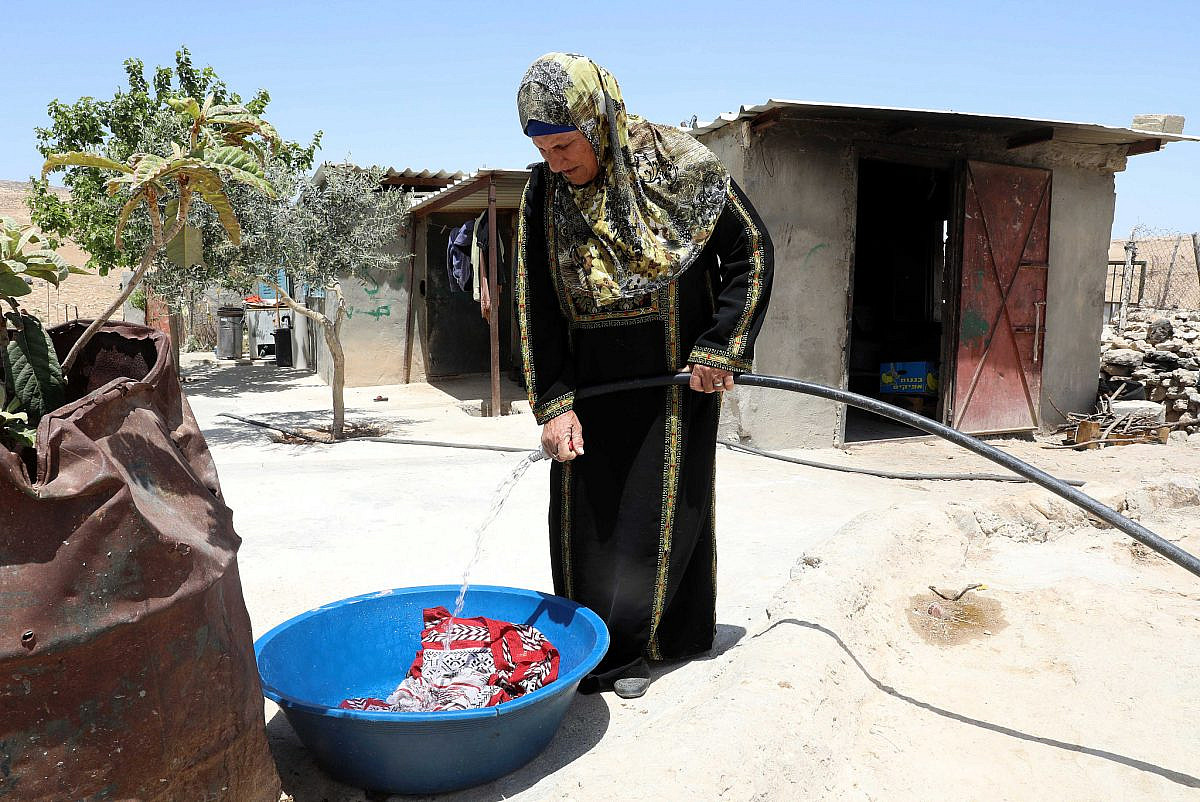In the midst of the summer’s oppressive heat waves, with temperature records being shattered around the world, it is especially difficult to be a Palestinian living under Israeli occupation in Masafer Yatta.
For this cluster of villages in the South Hebron Hills of the West Bank, the Israeli army’s restrictions have created a water crisis: Palestinian residents are prevented from connecting to the infrastructure that abundantly serves the Israeli settlers living nearby, leading to a major shortage in water for drinking, bathing, and agriculture. As a result, the Palestinians are forced to store rainwater in cisterns, or purchase water containers at exorbitant prices.
Israel maintains a system of water apartheid all across the West Bank. Jewish settlements and outposts (even those that Israeli law holds to be illegal) are connected to the Israeli water network, enabling their residents to consume water freely on demand without pre-imposed limits. They do not depend on the West Bank’s main water source, the mountain aquifer, because about 80 percent of their water is desalinated sea water, brought from inside the Green Line.
In neighboring Palestinian villages, however, consumption is determined by allocation within a separate Palestinian water network. This network does not function properly due to the military regime’s restrictions on Palestinian building of public infrastructure, including for pumping water. It is completely dependent on the mountain aquifer, from which the occupation authorities allow Palestinians to draw negligible amounts of water.
The quantity is determined by an anachronistic and discriminatory agreement that has not changed since it was signed between Israel and the PLO in 1995 as part of the Oslo Accords: 20 percent of the aquifer’s water for Palestinians, and 80 percent for Israelis. As a result, on most days of the week, Palestinians throughout the West Bank do not have sufficient running water, in contrast to their settler neighbors who consume on average three times more water.
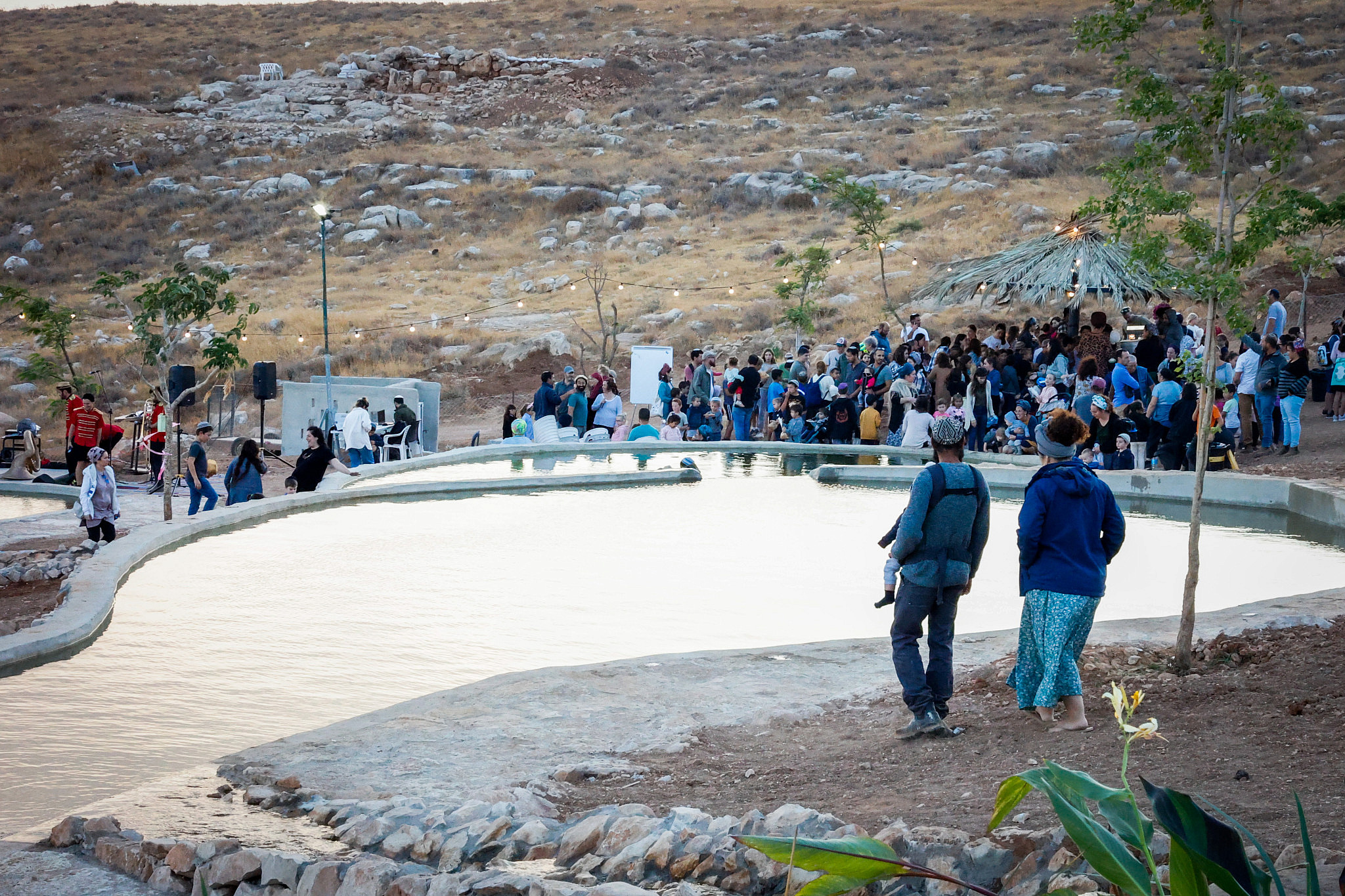
But there are some places, like Masafer Yatta where I live, and like the Jordan Valley, where this apartheid is particularly extreme. Here, most of the Palestinian villages — which Israel is trying to expel through quasi-legal mechanisms, army harassment, and violent settlers who enjoy impunity for their attacks — are not allowed to connect to the water network at all. Meanwhile, Israelis in the nearby villa-settlements consume on average 20 times more water than the area’s Palestinian villages.
The water allocation per person per day in the Jordan Valley settlement of Ro’i, for example, is 431 liters, while in the adjacent Bedouin village of Al-Hadidiyah, that figure is only 20 liters — a fifth of the minimum amount recommended by the World Health Organization.
In Masafer Yatta, my neighbors are forced to invest most of their money in transporting expensive water containers because they are prevented from connecting to the efficient and cheap water network. According to the World Bank, the monthly expenditure for water consumption reaches up to NIS 1,744 per month, which represents about half of the money a family spends each month. In the neighboring settlements, meanwhile, a family’s monthly expenditure on water can average NIS 105 — less than 1 percent of their total expenses.
This situation did not come about by chance. Israel has total control over the water resources between the Mediterranean Sea and the Jordan River, and these discriminatory policies reflect political motives. In Masafer Yatta, that motive is to force out the Palestinians while expanding Israeli settlements. Deliberate thirst is one of many means to achieving this.
‘We looked on, unable to do anything’
“The last heat wave affected us a lot,” said Hamda, a shepherd from the village of Susiya in the South Hebron Hills. “You feel like you’re suffocating and it’s hard to bear it. I live in a room made of tin, like many here whose houses the army repeatedly demolishes. The heat kills you when you live in a tin room, the whole place boils.”
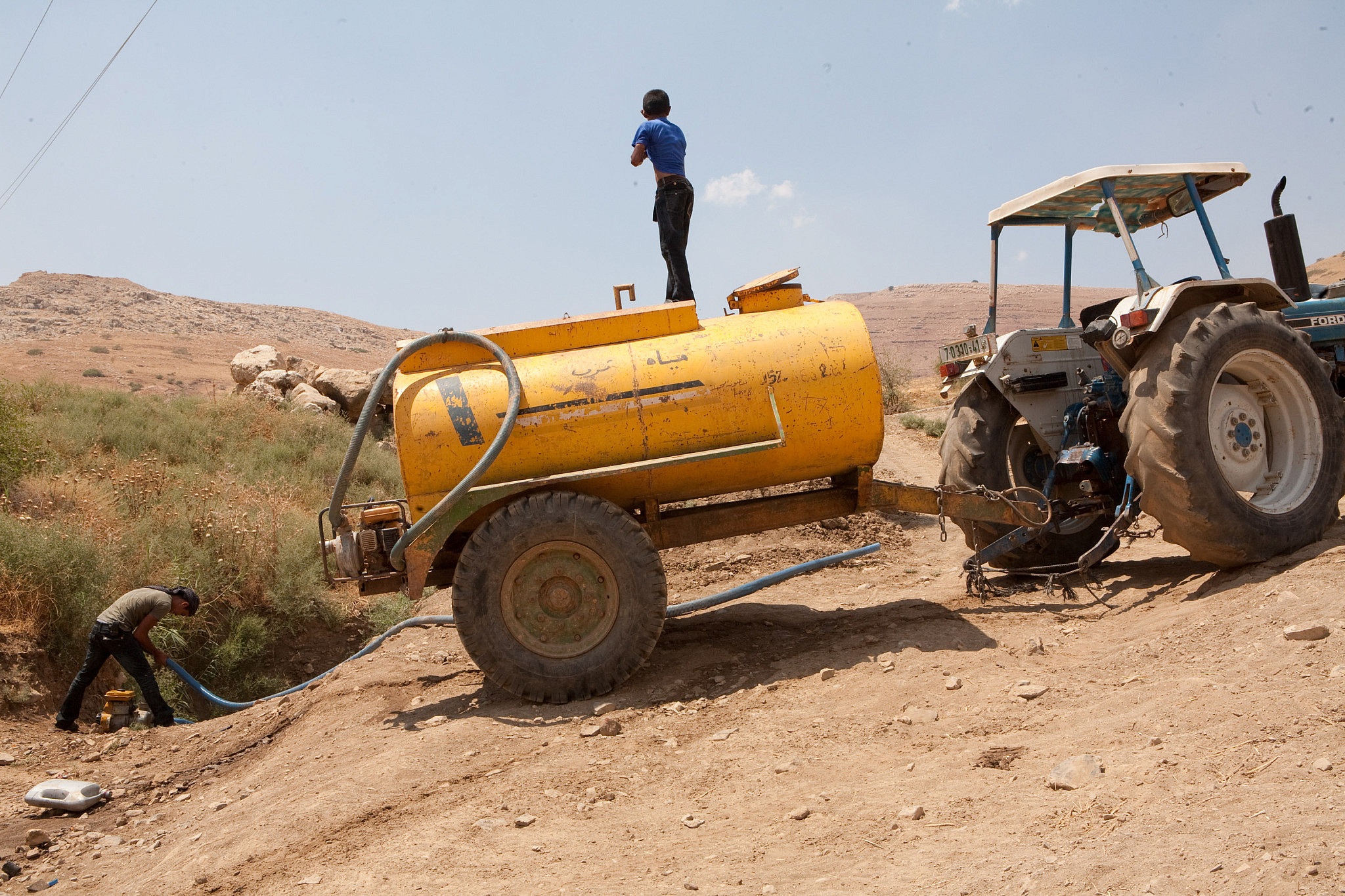
Beside Hamda’s house are solar panels installed by a human rights organization. The high electricity poles along the road, which link the nearby settlements, pass right next to his house, but he is forbidden from connecting to them. Like the rest of the village’s residents, he relies on solar energy or generators.
“Most of the day, in the summer, we don’t have electricity,” said Rana, Hamda’s sister. “During the last heat wave, we didn’t have electricity for 14 hours, so we couldn’t use fans to cool the room. We also need electricity to carry water with a pipe from the well in the center of the village to a water tank next to our house. Without electricity, this is impossible, and in heat waves we need even more water.”
Dealing with water is a daily, bothersome, and non-stop preoccupation, say the residents of Masafer Yatta. In the severe heat, sheep and other livestock also need more water, but the sun boils up the water stored in the tanks, which makes it difficult for the animals to drink. Moreover, in Palestinian villages like these, the army destroys water vessels and even seals wells and rainwater cisterns with concrete, because any such usage of water infrastructure is deemed illegal by the military regime.
In late July, Israeli officials from the Civil Administration — the bureaucratic arm of the occupation — were documented pouring concrete into water wells south of Hebron. The shocking footage was widely circulated on social media and generated outrage around the world, but it reflects a broad policy: throughout 2022, the army destroyed seven water cisterns and dozens of tankers in Masafer Yatta alone.
“The water cisterns have an emotional value for us,” said Odey, a 30-year-old shepherd from the village of Umm Kusa. “I remember as a child how I would take the sheep there with my father.” In May, the army came to his village and destroyed the cisterns that had been there since the 1980s, according to local residents.
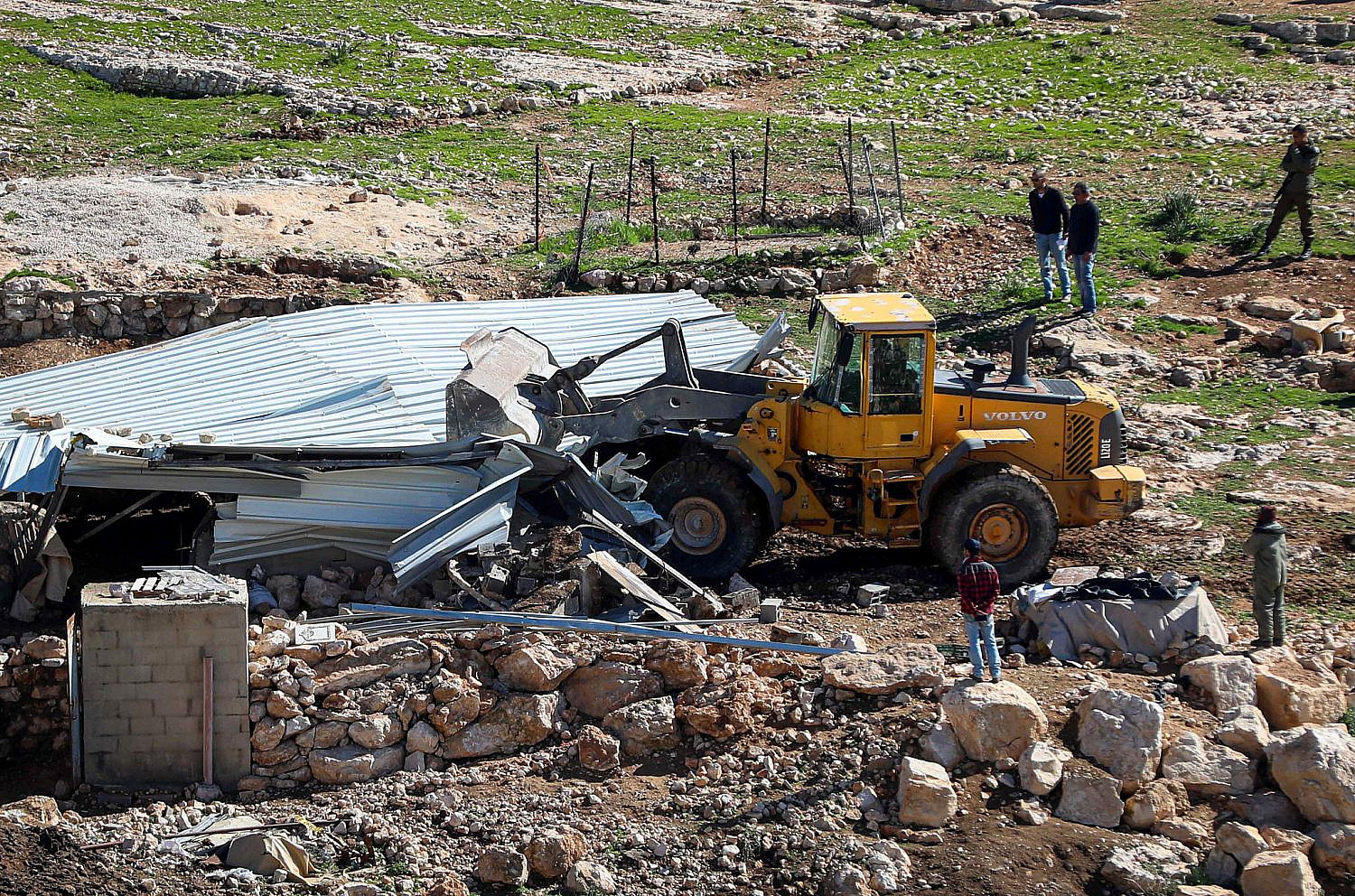
“The bulldozers came to the village, lifted tons of rocks and dirt, and just poured it all into the cistern which I grew up next to,” Odey continued. “They took out all the water that was in the pit, and tipped it out on the ground. There were about 100 cubic meters of water in each pit. It was supposed to last us for the summer months. And just like that, in an instant, they tipped it out and left while we looked on, unable to do anything.
“Now, in this heat, without rainwater pits, we are forced to take tankers of water on tractors,” he went on. “We leave the house in the morning with the flock and return only in the evening. Without these pits, we have no way of supporting ourselves.”
‘It is cruel’
What the army’s prohibitions and demolitions don’t achieve, the settlers complete. In the past year, there has been a rise in cases of settlers violently preventing Palestinians in Masafer Yatta from accessing the few water resources they have.
“In June, settlers came to our cistern, which is a few dozen meters from my home,” said Omar Abu Jundiyah from the village of Tuba. “I, my wife, and the children saw how they were setting up a tent over the cistern, and they prevented us from approaching.
“It is cruel, because everyone knows that these settlers are connected to the water network — a connection we can only dream of, with water that flows through a pipe straight into their house, and providing water for their fields and sheep,” he continued. “But nevertheless, they come to our pit, draw water from it, and satiate their sheep. When their sheep were finished, they poured all the water on the ground and left. And we look at them, thirsty, with our sheep in the caves unable to come out.”
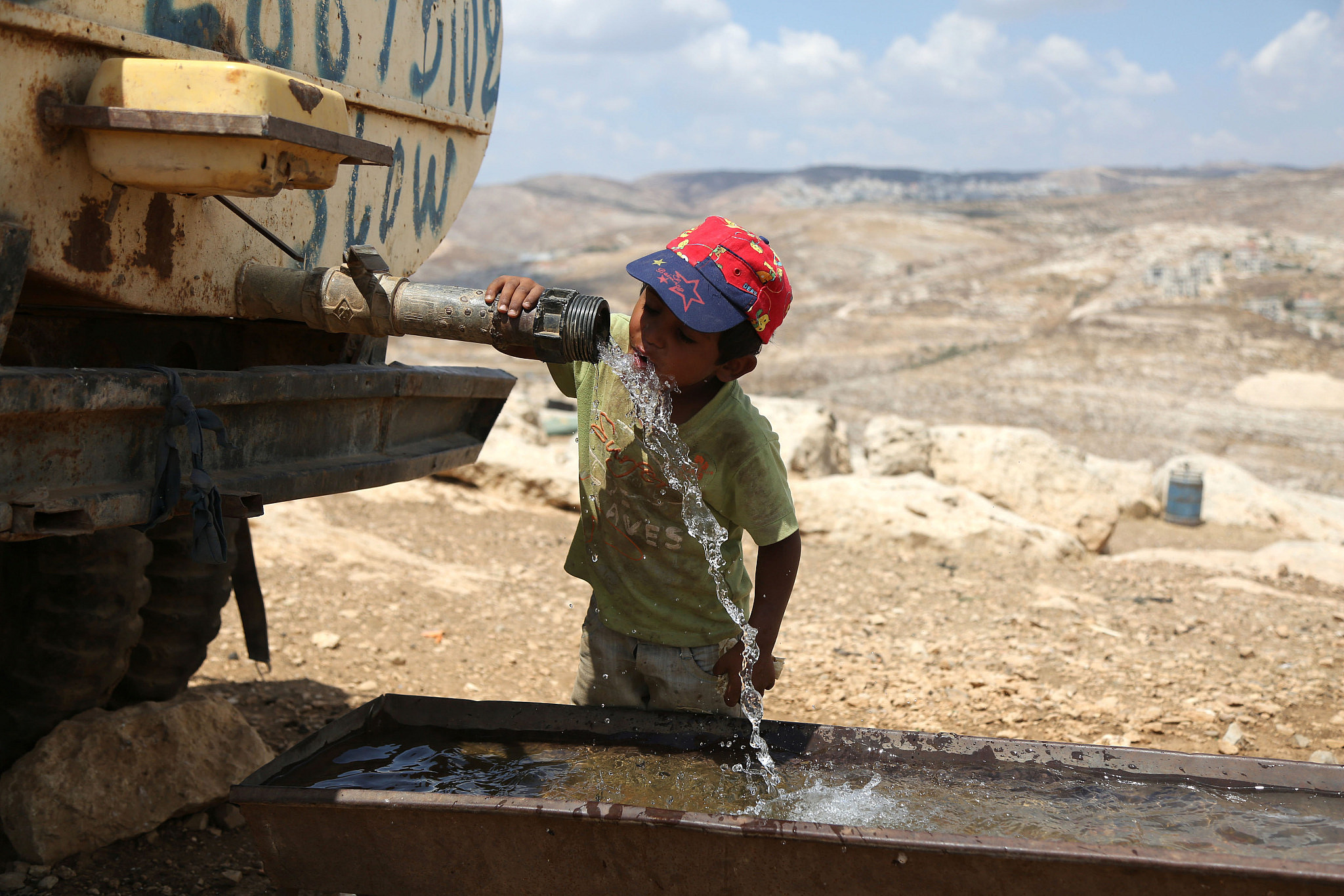
Last week, settlers entered Tuba and took over the Awad family’s water cistern, denying residents access to it. When soldiers arrived, they expelled the Palestinians on the grounds that they were in a military firing zone, yet allowed the settlers to remain. The army’s statement following the incident said that the settlers had “coordinated their arrival” to the area, and therefore received permission from the soldiers.
One of the places in the West Bank where this water apartheid is most visible is in the village of Umm al-Kheir, located only meters away from the settlement of Carmel, which was built on the Palestinian residents’ privately-owned land. A thin fence separates the villas of Carmel, where water flows abundantly, from the shacks of the Bedouin village, where construction is prohibited and which the army prevents from connecting to the water network.
Thus, on the same hill, Israel ensures there are two categories of people: one that is given support to build immunity to the climate crisis, and one made to suffer that crisis by actively denying them any resources.
Most read on +972
“This is the most difficult summer we’ve experienced in years,” said Umm al-Kheir resident Awdah Hathaleen. “I really see how it affects the people and the animals. There is no air conditioning, of course, because there is no electricity, and even the refrigerators cannot operate all day.
“The shepherds are forced to stay at home because they are afraid of dehydrating and not having water to drink,” he continued. “And because we stay at home, we have to buy feed for the flock, which costs a lot of money. We don’t have enough water for the people here, so how will we have enough for the animals and the plants?”
A version of this article first appeared in Hebrew on Local Call. Read it here.


